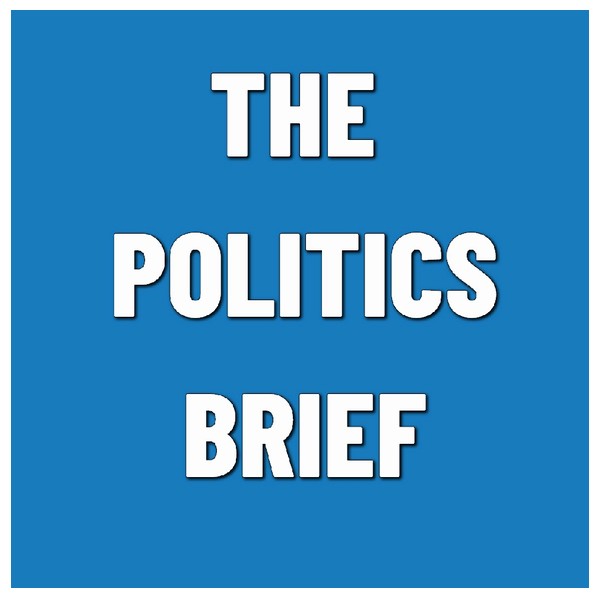Michigan’s Democratic Attorney General, Dana Nessel, filed charges on Tuesday against 16 individuals who allegedly attempted to act as electors for the Electoral College in favor of then-President Donald Trump during the 2020 election.
Post the November 3, 2020 election, Trump asserted that electoral fraud was the reason for his defeat both nationally and in Michigan, where he lost to Joe Biden by a narrow margin of 2.78%. In an effort to dispute the state’s results, some high-ranking Republican officials signed documents claiming they were Electoral College members and tried to vote for Trump, which led to forgery charges by Nessel’s office on Tuesday, as reported by NBC News.
Nessel asserted in a statement, “That was a lie. They weren’t the legitimate electors, and all of the defendants were aware of this.”
Among those charged were Meshawn Maddock, co-chair of the Michigan Republican Party, and Kathy Berden, who represent the state in the Republican National Committee. One woman who was charged claimed she believed she was signing an attendance sheet and was unaware of the term “elector,” as per WDIV News.
Following the signing of the documents, the purported false electors tried to deliver them to the U.S. Senate, claiming they were qualified electors. Senate officials, however, declined to accept them, according to NBC News. The documents were also sent to the National Archives.
Nessel stated the misleading slate of electoral votes were sent “with the intention of having Vice President [Mike] Pence overturn the election results, using the incorrect electoral slate.” Pence had declined to consider any alternative electors from states to prevent Biden’s election from being certified by Congress in 2020.
According to Michigan law, the state’s Electoral College electors must gather in the state Senate chamber after the election and vote for the party nominee who appointed them, after which the state sends the vote’s certificate to Congress, per the U.S. Constitution. These steps were reportedly not followed by the accused false electors, who are said to have met in the Michigan Republican Party’s office basement, according to NBC News.
These charges represent the first time legal action has been taken against alleged false electors during the 2020 election. Nevada’s Democratic Attorney General, Aaron Ford, has declined to pursue alleged false electors in his state, and the Department of Justice has also declined to file charges after Nessel referred the Michigan case to them.
The ‘fake electors’ controversy has been criticized as being misleadingly portrayed in the American media as an insidious plot, instead of a controversial practice that has been applied without criminal actions taken against alternate electors in some instances in U.S. history.
The popular pundit and investigator Kanekoa pointed to examples of Democrat supporters encouraging electors to reject Donald Trump, even if he should win the popular vote in state elections, in the 2016 election.
THREAD: In 2016, Democrats, Hollywood celebrities, and corporate news outlets urged electors to vote against President-elect Donald Trump.
Lawrence Lessig's article in The Washington Post on November 26, 2016, argued that Republican electors had the constitutional right and… pic.twitter.com/0pElja0zuR
— KanekoaTheGreat (@KanekoaTheGreat) July 19, 2023
“In 2016, Democrats, Hollywood celebrities, and corporate news outlets urged electors to vote against President-elect Donald Trump,” he wrote. “Lawrence Lessig’s article in The Washington Post on November 26, 2016, argued that Republican electors had the constitutional right and duty to switch their votes from Trump to Hillary Clinton. This sparked a movement supported by figures like Michael Moore, John Podesta, Keith Olbermann, Rosie O’Donnell, and several Hollywood celebrities. While they only convinced a few electors, it’s important to recognize the double standard of justice in the treatment of Democrats and Republicans when objecting to elections.”
As Lessig argued, “The framers believed, as Alexander Hamilton put it, that ‘the sense of the people should operate in the choice of the [president].’ But no nation had ever tried that idea before. So the framers created a safety valve on the people’s choice. Like a judge reviewing a jury verdict, where the people voted, the electoral college was intended to confirm — or not — the people’s choice. ”
Kanekoa added that, “Liberal activists like Chris Hayes, Norm Eisen, Laurence Tribe, and George Takei urged electors to vote against President-elect Donald Trump in 2016.”
He also pointed to editorials at liberal news outlets: “The Daily Beast: “It’s not too late for electors to change history.” Slate: “Will enough electors go rogue to stop Trump?” Vox: “Let conscientious electors do their jobs.” Time: “Electors against Trump are faithful not faithless.”
The question of whether anyone should face criminal prosecution related to the submission of alternate slates of pro-Trump electoral votes in 2020 merits comparison to historical instances. The case of the 1876 election involving South Carolina, Florida, and Louisiana illustrates the complexities of such electoral disputes. The differing situations in these states illustrate the issue; particularly, Democratic candidate Samuel Tilden’s weak position in South Carolina.
Despite this, Tilden’s electors in South Carolina cast their votes for him, though their status as the state’s official electors was unanimously rejected by the Electoral Commission. Interestingly, despite their unfounded claims, these individuals were not criminally prosecuted.







